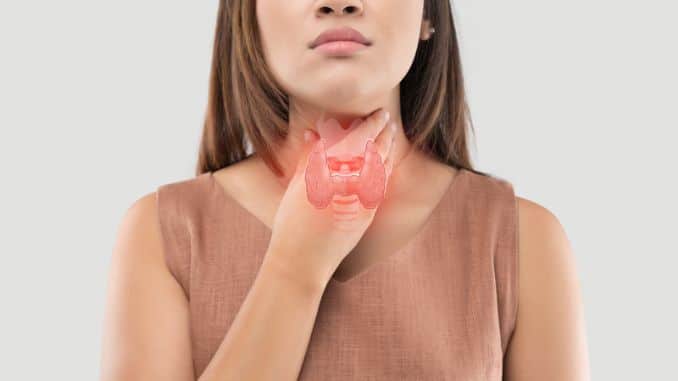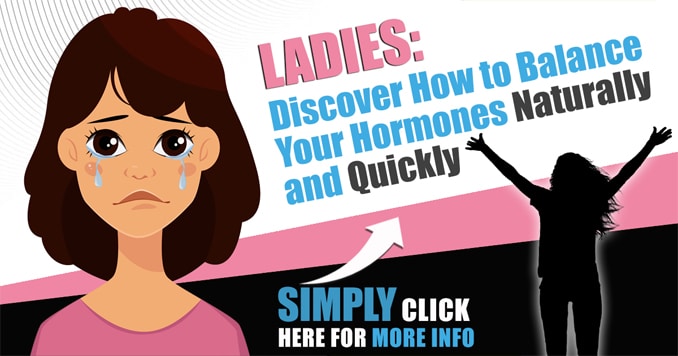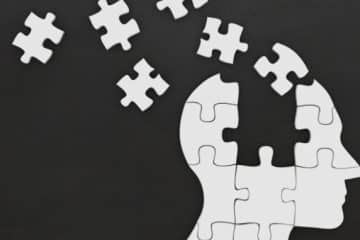The information that we will be discussing is basically for your information only. It does not replace the care of a physician. If you are looking for individualized nutritional information based on your health history or your current health status, definitely consult a physician.
What is Thyroid?
The thyroid is a small, butterfly-shaped gland located at the base of the neck. It produces hormones that regulate metabolism, heart rate, and body temperature. The thyroid is an important part of the endocrine system and is essential for proper thyroid function. There are several reasons why it's important to have a healthy thyroid. For one, the thyroid helps to regulate metabolism. This means that it helps the body to convert food into energy. If the thyroid isn't functioning properly, metabolism can slow down, leading to weight gain.
Additionally, the thyroid helps to regulate heart rate. If the thyroid isn't functioning properly, the heart rate can become irregular, which can be dangerous. Finally, the thyroid helps to regulate body temperature. If the thyroid isn't functioning properly, body temperature can become too high or too low, which can be dangerous. Some things can cause thyroid problems. These include autoimmune diseases, infections, tumors, and medications.
Generally, there are many nutrients that play a role in supporting healthy thyroid function. Iodine and selenium are the most important, as they are essential for producing thyroid hormones. Other needed nutrients for thyroid function include Tyrosine, iron, zinc, fluoride, and vitamin A. A diet deficient in these nutrients can lead to problems with thyroid function.
That's why it's important to ensure you get enough of these nutrients from your diet. The best way to do that is to eat various healthy foods, including plenty of fruits, vegetables, and whole grains. You can also get some of these nutrients from supplements. However, it's always best to get your needed nutrients for thyroid function from food first. If you take supplements, talk to your doctor first to ensure they are right for you.
What is Nutrient Therapy?

Nutrient therapy is an alternative medicine that uses nutrients to support the body's natural healing processes. Nutrient therapy aims to correct any imbalances in the body that may be causing illness or disease. Nutrients in nutrient therapy include vitamins, minerals, amino acids, and enzymes. Doctors often use nutrient therapy to treat anxiety, depression, and chronic fatigue syndrome. It can also boost the immune system, improve digestion, and reduce inflammation.
Nutrient therapy can help to improve thyroid function and alleviate these symptoms. In most cases, nutrient therapy involves taking supplements that contain iodine, selenium, and tyrosine. These nutrients are essential for thyroid function; taking them in supplement form can help improve thyroid function and alleviate symptoms. If you're interested in trying nutrient therapy, talk to your doctor to see if it's right for you.
How many of you have actually used nutrient therapy for thyroid support?
If you go to a health food or grocery store, they carry a certain thyroid support formula which is often a combination of herbs and nutrients. Many people believe these things are automatic and would just start using them. When patients have low thyroid function symptoms, even if their labs are “normal,” you can do something about that. You do not have to wait until something is unable to function. You can stop things before they progress.
Key Nutrients Needed for Thyroid Function:
1. Tyrosine
Basically, tyrosine is a nutrient in food like spirulina, soy, eggs, cheese, poultry, fish, meat, and grains. There are lots of foods containing Tyrosine. We need Tyrosine to make thyroid hormones. Our bodies and thyroid glands need Tyrosine to make T4 and T3. When you buy thyroid support formula, often, it contains Tyrosine. Some say they do not need to take supplements because they get them in the foods.
However, taking supplements is like taking insurance. Most of the things we take in the form of supplements, our bodies will eliminate them when they are excessive. Clinically, many patients benefit from nutrient therapy, even if they are likely getting a good dose of B12 in their food. They still feel better when they take more. While there are no evidence-based, double-blind, placebo-controlled trials, it doesn’t mean that they are not helpful. We do need tyrosine to make our thyroid hormones. This is one of the needed nutrients that might be helpful if you are hypothyroid.
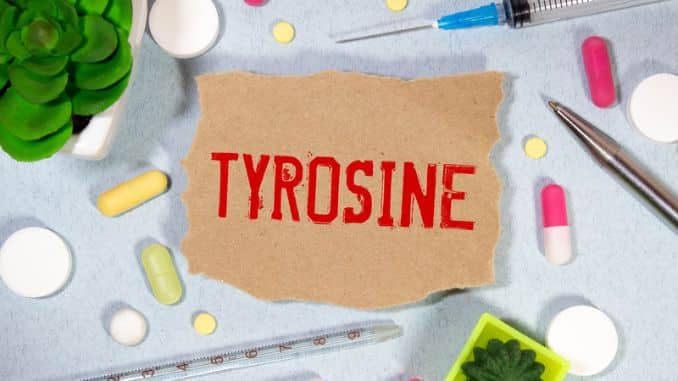
2. Iodine
Some people will take Iodine as the first step in their thyroid journey. Iodine is one of the needed nutrients for thyroid function but has pros and cons when it comes to thyroid. We need Iodine to make thyroid hormone. Iodine plus Tyrosine is what makes our T4 and T3. If we don’t have any Iodine, we will not make thyroid hormone, and we will have a lot of symptoms.
We should not supplement Iodine sometimes, especially if we're getting Iodine in our food. There are some people with hypothyroidism who Iodine can aggravate. Many thyroid support formulas contain Iodine because we need it to make thyroid hormones. Iodine can also inhibit our thyroid secretion. It got its control job, and if we have too much of it, we can run into trouble.
Additionally, some foods containing Iodine include sea vegetables, seaweed, and nori. The vegetables you get in the ocean. These are naturally high in Iodine. Depending on where the animals are raised, dairy has some iodine. They put Iodine in their feeds for the cow and used Iodine to clean the animals.
Iodine is a natural antiseptic agent. You paint a brownish solution into the arm as a disinfectant when doing a minor surgical procedure. There was a test where you could paint Iodine to your skin, and you would watch how long you could absorb it.
If it’s very quick, you are “very Iodine efficient”, but if you take a long time, you don’t need Iodine. Some people use that to determine if they are low in Iodine. If you’re eating dairy products treated with Iodine, you will be getting your source there. One large egg contains about 16 percent of your daily Iodine recommended intake in the yolk. If you’re not eating egg yolks, you are not getting your Iodine.
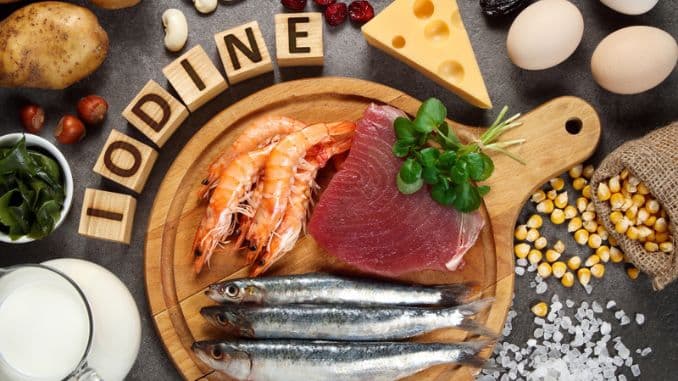
3. Vitamin A
Vitamin A comes from beta carotene, and beta carotene comes from orange things. If you eat orange things, you are naturally getting a good source of beta carotene, which helps us make our vitamin A. Vitamin A helps our cells absorb or utilize the thyroid hormone. It’s no good making thyroid hormones if our receptors are not receptive to that hormone. So vitamin A helps with that piece.
Vitamin A is a fat-soluble vitamin that has the potential to cause a toxic amount because we store them in fat, and our bodies don’t eliminate excess amounts. If you take a ton of vitamin A, your body may hold on to that; hypothetically, that will be a problem.
Moreover, Vitamin A is not recommended for pregnant women. A small amount is needed for pregnancy, but it can be teratogenic, which can lead to birth defects and all kinds of issues like that in fetuses. It is typically not recommended. Beta carotene is recommended because it helps make vitamin A, and you cannot overdose on it. Some other symptoms of vitamin A deficiency would be low immune function.

4. Zinc
Zinc is an essential mineral that helps the body to function properly. It's involved in many different processes, including the metabolism of thyroid hormones, the production of enzymes, and the regulation of gene expression. Zinc also boosts immunity, wound healing, and cell growth. The body needs zinc to stay healthy but can't produce it alone. Zinc must be obtained through diet or supplements. Good sources of zinc include meat, poultry, seafood, nuts, and legumes. Zinc is also found in many multivitamins and mineral supplements.
You are deficient in zinc if you have hypothyroidism.
Different functions of zinc:
- It helps increase the conversion of T4 to T3 hormone.
If you're supplementing with levothyroxine and since many people are prescribed T4 hormone like Synthroid, we have to convert that to T3. Zinc helps in that process. If you're overloading your system with T4 and are not using it very well, maybe you’re zinc deficient, and taking zinc can be helpful.
- It also helps improve the cellular sensitivity to thyroid hormone.
As with vitamin A, if thyroid hormone is coming in and it is not binding very well in the cell, it might be because you need some zinc to help resensitize that receptor to the hormone. It helps to make thyroid hormones and is part of the production of T4 to T3 in the first place.
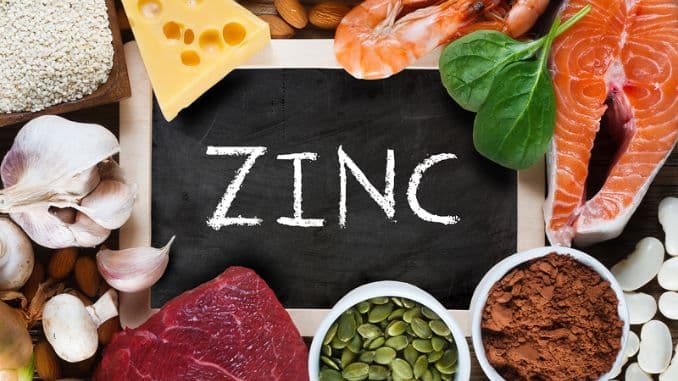
Signs of Zinc Deficiency:
-
Acne
Acne is a common skin condition that can signify zinc deficiency. Zinc is an important mineral for skin health, and a deficiency can lead to dry, flaky skin and breakouts. If you're struggling with acne, it's worth checking your zinc levels. A simple blood test can tell you if you're deficient. If you are, you may need to supplement or increase your intake of zinc-rich foods. Foods high in zinc include oysters, beef, and pumpkin seeds. So if you're looking for a natural way to clear up your skin, ensure you're getting enough zinc!
-
Eczema
A common skin condition that can signify zinc deficiency. Zinc is an essential mineral that helps to keep the skin healthy. When zinc levels are low, the skin can become dry, cracked, and inflamed. Eczema is often itchy and can be very uncomfortable.
-
Dry, scaly skin
-
Seborrheic Dermatitis
A skin condition characterized by red, scaly patches. It is often found on the scalp but can also occur on the face, chest, and back. Seborrheic dermatitis is thought to be caused by a combination of factors, including yeast, hormones, and a weakened immune system. It is also common in people who are zinc deficient.
-
Hair loss or Alopecia
Hair loss or alopecia is one of the most common signs of zinc deficiency. When zinc levels are low, the body cannot produce keratin, a protein essential for healthy hair. In addition to hair loss, zinc deficiency can cause dry and brittle hair and dandruff. Zinc deficiency is often caused by poor nutrition, but it can also be caused by certain medical conditions, such as Crohn's disease and celiac disease. If you are experiencing hair loss, it is important to see a doctor to rule out any underlying medical conditions. Zinc deficiency can be treated with supplements, but it is always best to get zinc through food sources first.
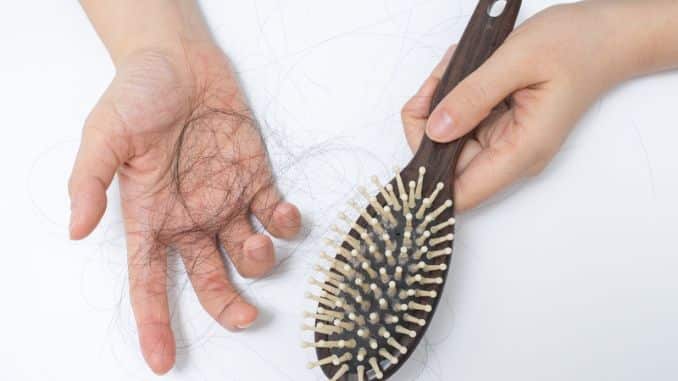
-
Oral ulcers like Canker sores
Basically, zinc is an important mineral for the body and plays a role in immune function, cell growth, and wound healing. A zinc deficiency can occur when the body doesn't have enough zinc or when it can't absorb or use the zinc it does have. Oral ulcers are one of the first signs of zinc deficiency and can be painful and annoying. Oral ulcers, also known as canker sores, are a common symptom of zinc deficiency. If you think you may be zinc deficient, talk to your doctor. They can order a blood test to check your zinc levels and ensure you get enough minerals.
-
White coating on the tongue
-
Disturbances to a sense of smell or sense of taste
-
Loss of appetite
Another classic symptom of zinc deficiency is when you have impaired healing. If you cut yourself or are injured and the wound takes a long time to heal, it might be a symptom of zinc deficiency. You can take Zinc in all kinds of forms. You can take it in a lozenge like a throat lozenge, tablets, or capsules. Some foods contain zinc, too.

Testing Zinc Levels
The way to test zinc is to test the zinc and copper levels together. One thing with zinc is if you have a healthy amount of zinc in your system and supplement with zinc, you can disrupt your zinc-copper balance.
Oftentimes, a zinc supplement or a multivitamin will contain X amount of zinc and a tiny amount of copper, and that’s pretty much how you want it to be in the body. We should have quite a bit more zinc and copper. Most of the people we checked are high in copper and low in zinc relative to others. That ratio is off in favor of copper being too high, which can lead to many neurological symptoms. These symptoms include weird numbness and tingling, brain fog, or you may feel depressed, or anxiety.
We usually don't recommend copper with zinc for people trying to increase their zinc because we want that ratio to be improved. One thing about zinc is you always want to take it with food as it is harsh on an empty stomach.
Can you take zinc with thyroid meds?
Don't take anything with your thyroid meds. Thyroid meds should always be taken alone.
Can we take things like magnesium and other supplements or keep them separate?
You can take the supplements together. If you’re going to take minerals, always take them with food because they’re harsh on an empty stomach. This is what the conventional recommendations are; this is not medical advice. We would still strongly recommend you ask your doctors, but in general, it is recommended that minerals be taken with food.
How many milligrams of zinc do you recommend?
That depends on how deficient you are and who is prescribing. A reasonable daily dose should be between 25 and 50 mg, depending on the person and what you try to achieve when you are sick.
5. Iron
It is one of the needed nutrients for thyroid function. Iron deficiency can impair your thyroid function. If you have low iron and it has not been well treated, or you’re not supplementing with an iron supplement and know you’re low iron, get on it because that would interrupt your thyroid metabolism. We check for low iron through a CBC (Complete Blood Count).
We are looking at red and white blood cells, assessing the size and number of red blood cells with your hemoglobin and hematocrits. Iron deficiency anemia on a blood panel will show small red blood cells that are, and you will have low hemoglobin and low hematocrits. That’s classic iron deficiency anemia, and you need a supplement.
Often, people will have relatively normal CBC, but their ferritin will be low. Ferritin is the storage form of irons. This is a different test. If your ferritin is low, but your CBC is normal, you might still benefit from a little iron support. Generally, especially for people who are trying to get pregnant.
There are a couple of other reasons why Ferritin can be low besides iron. If you’re supplementing with iron and not feeling any better despite that, you have low ferritin. It might be that you don't need iron. It's usually the case if it's telling us that your storage form of iron is starting to slide. You may want to get that level up before it becomes iron deficiency anemia and your blood count circulate oxygen around the body. That’s a worse situation.

6. Fluoride
Fluoride is not a nutrient that you're going to supplement with. We want to bring this up because many people need to be made aware that fluoride in iodine and chlorine are all in the same fluorine. Iodine and chlorine are all elements that hold the same number of electrons.
From a scientific perspective, chlorine and fluorine can both replace iodine when it comes to thyroid function. If you are frequently drinking fluorinated water or if you’re frequently swimming in a chlorinated pool, that could be contributing to thyroid imbalance, and this is a studied phenomenon. Something to keep in mind is that if you drink fluorinated water and have low thyroid function or symptoms of hypothyroidism, that may be something to switch out and get some non-fluorinated instead.
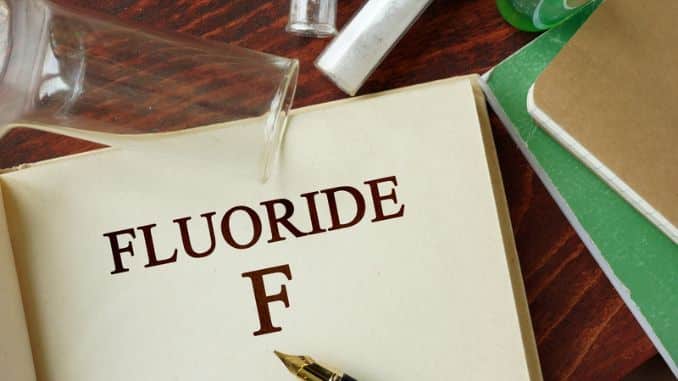
A healthy thyroid is important for overall health and well-being. You can do a few things to keep your thyroid healthy, such as eating a balanced diet and exercising regularly. A balanced diet is important for all aspects of health, and the thyroid is no exception.
Other needed nutrients for thyroid function include iodine, selenium, and zinc. These are needed nutrients that can help keep your thyroid functioning properly. In addition, eating plenty of fruits and vegetables, as well as lean protein, can also help. Exercise is also important for thyroid health. Getting regular physical activity can help to boost metabolism and keep hormone levels in check. Thyroid problems can be serious and lead to other health problems if they're not treated. If you have a thyroid problem, you must see a doctor.

